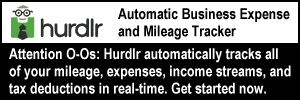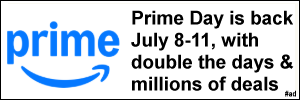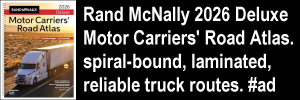To most people, the subject of “budgeting” conjures up images of personal finances which are restrained or deprived.
 However, we encourage you to consider your budget to be a “spending plan,” much like what you use to plan your route to haul freight from shipper to receiver.
However, we encourage you to consider your budget to be a “spending plan,” much like what you use to plan your route to haul freight from shipper to receiver.
It is a very freeing thing to know that you’re going to have what you need to make things work.
A Trucking Analogy
Since you’re a professional driver, consider this analogy:
- Your truck needs fuel to operate.
You can either depend on what is in the tanks to make your trip or get more along your route.
You don’t want to run dry. - Your bills need to be paid.
You can either depend on what is in your bank account or deposit more money into it.
You don’t want to have insufficient funds.
This is the essence of budgeting: planning out your needs and working to achieve your goals.
Budget Fluctuations
There are many things that can affect a budget.
For one thing, unless you are a driver with a dedicated route (and have a regular and consistent salary) or you drive locally (and have consistent hours at a consistent hourly wage), your paychecks will vary.
Even with a dedicated route or local job, there can be things that can affect your ability to earn income or that affect your expenses.
Market conditions sometimes change; when they do, business changes.
It’s just a fact of life.
You will need to work out a system to plan for income and outgo ups and downs.
You don’t want to spend everything during weeks when your checks are up and be caught shorthanded when checks are down.
Why Budgeting Your Money is So Important
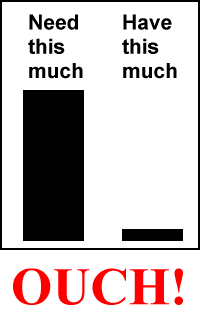 Getting caught shorthanded on your personal finances is just as humiliating as the time when we ran out of fuel on I-285 south of Atlanta.
Getting caught shorthanded on your personal finances is just as humiliating as the time when we ran out of fuel on I-285 south of Atlanta.
We were embarrassed to have to call our trucking company to get a service truck to bring diesel to us.
By the time the service truck arrived, the lights on our truck had been flashing for so long that our batteries has also run low!
Our truck not only needed diesel, but it needed a charge, too!
What was even more embarrassing was that we were less than 10 miles from the truck stop where we had planned to get fuel, and from which the service truck originated.
The truck we were driving at the time had twin 120-gallon tanks, so there was no excuse to run out of fuel.
We should have planned better.
We had had an opportunity to get fuel along the way but didn’t take it.
Mike had said, “We’ve got enough to get us to the Conley TA.”
But we didn’t!
Ouch!
Plan Ahead to Prevent Future Financial Disaster
In the realm of personal finances, running out of money will not only cause checks to bounce, but there are embarrassing charges that can be tacked onto your account.
“Insufficient funds” and “overdrawn account” type charges can really rack up.
Not only that, but in our area, there used to be a judge who despised bounced checks and put willful violators in jail!
You don’t want that.
So, if you haven’t yet begun to set up a budget, determine that you’ll start by a certain date, preferably today.
How to Start the Process
Just as in driving a truck and delivering freight, there are four crucial parts of the budgeting process:
- knowing where you have been (previous loads and customers, history, good and bad experiences);
- knowing where you are (shipper);
- knowing where you are going (receiver); and
- knowing how you will get there (route and responsibilities).
Let’s look at each of these in depth.
Where You’ve Been: Your Past
The key to shaping your financial future is knowing your past, that is, where you have been. One weight-loss doctor (Dr. Shapiro’s Picture Perfect Weight Loss: The Visual Program for Permanent Weight Loss) asks his patients to keep a “food diary” so they can see for themselves what, how much, and when they’re eating, as well as what they were feeling when they ate.
Understanding one’s current eating habits is a key to helping shape one’s future eating habits.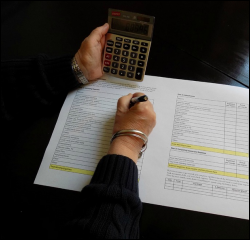
Similarly, understanding one’s current spending habits is a key to helping shape one’s future spending and saving habits.
We recommend that you keep a “spending diary” for 30 consecutive days (one month).
Write down every penny you spend, no matter what it’s on, to examine what you’ve actually spent.
When you’re done, you may be surprised.
For your convenience, feel free to download and use our spending diary (available through our free downloads).
Print off several sheets if you need to.
Also, some people have been greatly influenced regarding their personal finances.
The influences may have come from parents, other family members, the media or some other source.
It is a good idea to write down those influences, where they came from, and how strong they are.
Identifying them is half the battle; once identified, you can change them if you like.
Where You Are: Your Present
Now, let’s imagine that after receiving a new load assignment, you’ve just picked up the load at the shipper.
You can’t very well plan your route to the receiver if you don’t know where you are, your starting point.
Similarly, your account balances are a snapshot of your personal finances, that is, “where you are” financially right now.
While the snapshot changes with every deposit and withdrawal, it is where you are.
Don’t kid yourself; make sure you have an accurate balance.
When we say “account balances” we mean all of your accounts: checking, saving and investments.
Include them all in your budget.
Where You’re Going: Your Destination
 Knowing your destination, that is, where you are going is critical.
Knowing your destination, that is, where you are going is critical.
In trucking, that is the receiver.
In budgeting, that is your list of financial goals.
After you have started your “spending diary,” make a list of your financial goals.
Review your list periodically.
Check off the goals you met, revise goals as needed, and add new ones according to your preferences.
Your list should include short-term goals (such as paying off a $100 credit card bill) and long-term goals (such as buying a home).
In any case, your goals need to be realistic and measurable. Let’s look at these a little closer…
Realistic Budgeting Goals
An example of an unrealistic budgeting goal is saving $1,000,000 in 3 years if you’re getting paid $0.40 per mile and averaging 2,500 miles per week.
Your income of $1,000 per week won’t allow you to save $1,000,000 in 3 years.
However, an example of a realistic goal based on that income might be to save $100 of that $1,000 paycheck.
Measurable Budgeting Goals
An example of an immeasurable budgeting goal is saving “hundreds of dollars this year.”
It sounds noble, but it isn’t specific.
It may allow you to shoot for a minimum, but perhaps you can do better and can stretch yourself more.
An example of a measurable goal is saving $100 per paycheck over $1,000, every week in June.
You can tell whether or not you achieved a specific goal.
If you currently aren’t budgeting and have no money set aside, a good short-term goal would be to start working toward creating a six-month emergency fund.
Work on it realistically and measurably, a little at a time until you accomplish it.
You can expand that goal later on.
Thinking of Budgeting as a Game
Think of your spending plan like a game of basketball.
 The ball by itself is just there.
The ball by itself is just there.
It doesn’t throw itself.
Someone has to pick it up and do something with it, like bounce, dribble, pass or shoot it.
 What good does it do to shoot the ball with no goal?
What good does it do to shoot the ball with no goal?
 By having a goal, you can aim toward it.
By having a goal, you can aim toward it.
Think of shooting the ball toward the basketball hoop.
 The more you practice, the more precise your goals can become.
The more you practice, the more precise your goals can become.
If you miss the goal, don’t give up!
The “game” isn’t over yet.
 Remember, these are your personal finances and your budgeting goals.
Remember, these are your personal finances and your budgeting goals.
Achieving your first realistic and measurable goal is worthy of a celebration!
Just keep setting new goals and working to achieve them!
How You Will Get There: Your Route
Now, how will you achieve your financial goals?
In trucking, you plan your route from shipper to receiver.
In budgeting, you plan how you will spend your paycheck.
Here’s a word of advice: Don’t make things complicated.
Make your plan simple and reachable.
Remember, these are your personal finances.
Your situation is totally unique to you.
You don’t want to be frustrated before you give yourself a chance.
Budgeting Helps
We’re going to address a number of things to remember in the budgeting
process, including
- setting up your budget or budget planning;
- looking at aspects of a truck driver salary (your income);
- setting up your money saving plan;
- using computer software for budgeting and managing money;
- good record keeping; and
- how we reached a large long term goal so as to make our dream come true.
Things That Affect Budgeting
We also have either discussed or plan to discuss big and small expenses that can eat away at your ability to achieve your budgeting victories, including:
- ATM and bank fees;
- foreign ATM fees;
- cash advances and spending money;
- ways truckers lose money;
- attitudes about money;
- personal habits;
- splurging on “I owe it to myself” expenses;
- out-of-pocket truck expenses; and
- paying off credit card debt.
We address the issue of trucker retirement in a series of articles:
We cover various aspects of trucker household income:
- truckers’ income;
- truckers’ wives income;
- second income and what to look for;
Trucking Business?
If you are running your own trucking business — or are just thinking about it — you will want to keep your personal finances separate from your business finances.
You’ll need to set up a budgeting system for both home and office.
Perhaps you can benefit from our planned section on
- buying your own truck and
- leasing your own truck.
We’d like to share with you a few personal stories that may help you in your process:
- A driver whom Mike counseled to reduce financial stress;
- Ed vs. Esther on money management styles; and
- What Mike learned about the per diem pay option.
We examined different attitudes about saving money that were spawned by what we found on Twitter and provide an object lesson about priorities: “The Big Rocks Must Go In First.”
We address the issue of entertainment options available to truck drivers and the costs.
We issued a “no credit cards” challenge for those who are credit card dependent. Think you can give them up and use cash only for one month?
If you ever needed a bit of inspiration about budgeting based on pressure from the government, consider the effects of Qe3 and potential bank issues.
In case you’re wondering, just about anyone can start investing a bit of spare cash regularly. We share with you the investment advice we’ve learned through the years and what we’ve used ourselves.
Don’t forget to take advantage of sales tax holidays where you can.
Speaking of holidays, you can save money when you’re on a Thanksgiving trip, too.
Need a bit of encouragement about using a budget, but from a reverse way of looking at the issue? Check out “5 Reasons Not to Budget” (link).
We challenged veteran truck drivers regarding their financial futures and provided a short list of items drivers may want to do financially before the end of a year.
Income Taxes
Of at least annual interest to professional truck drivers is information about tax deductions.
Additional Resources: Budgeting
- 6 jars
- 26 percent
- Are You Letting Yourself Be Controlled?
- Bookworms
- Celebrating milestones
- Change from Purchases
- Company pay rate inquiry
- Discount club membership
- Financial mental games
- Going backward?
- Know where your money is going
- Learn Law Over the Road
- Longevity and money
- My preplan was canceled!
- My receipts are a mess
- Steady paycheck?
- Time for Evaluation
- Your past doesn’t equal your future
![]() Money saving tip:
Money saving tip:
The largest part of setting up this kind of system that works for your personal finances is mental. There are resources — even some excellent free ones — to assist you, even if you’ve never done it before.
Here are some encouraging and inspiring words to help you on your way.
The Man Who Thinks He Can
by Walter D. Wintle
If you think you are beaten, you are;
If you think you dare not, you don’t.
If you’d like to win, but think you can’t
It is almost certain you won’t.If you think you’ll lose, you’re lost,
For out in the world we find,
Success begins with a fellow’s will;
It’s all in the state of mind.If you think you’re outclassed, you are:
You’ve got to think high to rise.
You’ve got to be sure of yourself before
You can ever win a prize.Life’s battles don’t always go
To the stronger or faster man,
But soon or late the man who wins
Is the one who thinks he can.
Remember: just because you have disposable money available to spend does not mean you need to spend it. Budgeting your money should be viewed as a friend rather than a foe.
In case you need it, we have described a goals sheet and to-do checklist linked on our to do list page.



